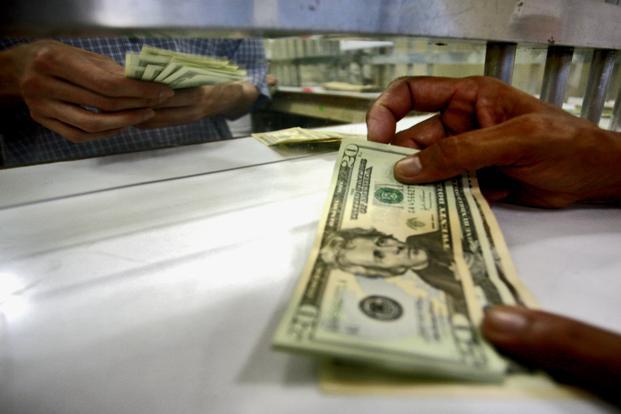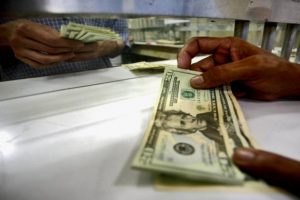
Americans bully our banks because the dollar rules the world — but for how long?
At some point during the next year the American government will extract a huge sum of money from British taxpayers. It will happen via a multibillion-pound fine levied on Royal Bank of Scotland, which remains 73 per cent owned by taxpayers, for misselling residential mortgage-backed securities before the financial crisis.
The US Department of Justice recently hit Deutsche Bank with a $14 billion fine for the same offence. That levy, which sparked concerns about the German lender’s ability to pay, may be reduced. Expect the DoJ to demand at least as much from RBS, since the latter was a bigger player in the market. Deutsche wrote $67.3 billion worth of RMBS business. RBS acted as lead underwriter for some 250 such issues valued at $250 billion. It has so far set aside $5.6 billion for its likely punishment.
The US Department of Justice couldn’t care less that British taxpayers stand behind RBS
So what, you may say. The banks are getting their just deserts. But leave that aside for a moment and remember that regulators are charged with ensuring a safe operating environment for all market participants. At present the DoJ is not doing that. Rather its behaviour amounts to what some London-based bankers call “regulatory imperialism”.
Consider Deutsche Bank. The DoJ is demanding from it only $1 billion less than JP Morgan has paid in total settlement to the DoJ and all other US regulators involved, including compensation payments to investors, despite the latter writing $419 billion in RMBS — more than six times as much as Deutsche. Citi, which wrote roughly the same amount of RMBS business as Deutsche, had to pay a total of $7.2 billion in settlement, just over half as much as the DoJ alone wants from the Germans.
American authorities can do this because the US dollar is the global reserve currency. Non-American institutions have no choice but to pay these sums if they wish to continue trading in dollars. The classic example is Standard Chartered, which, in August 2012, paid $340 million to the New York state department for financial services for breaking US sanctions against Iran. The bank’s managers were privately furious and unfortunately its chairman, Sir John Peace, made that unhappiness public when, the following March, he told shareholders that there had been no deliberate sanctions-busting and that the breaches were clerical errors. Hours later the Americans summoned him to atone in person, obliging Sir John to retract his comments publicly. HSBC and Barclays, along with European banks such as BNP Paribas, have faced similar duffings-up.
At best US regulators are rent-seeking to exploit the dollar’s international reserve status. At worst they are deliberately creating an uneven playing field to benefit their local operators at the expense of foreign rivals. Appeals to reason fall on deaf ears. The DoJ could not care less that Deutsche would struggle to pay its fine without a whip-round, to which German taxpayers may have to contribute, or that British taxpayers stand behind RBS.
With Donald Trump committed to putting the interests of American companies above those of rivals, such antics may become more common in the next four years.
Yet there is also a risk for the Americans. Mr Trump’s plan to slash taxes and let public spending rip, with disregard for the budget deficit, has already rattled the bond market. International investors will probably carry on buying US treasuries but that is not guaranteed. If China dumps the trillions of dollars worth of treasuries it has accumulated over the last decade or stages a buyer’s strike the dollar’s international reserve status will be tested like never before. If that status is diminished, so too will be the ability of US regulators to bully foreign banks.

